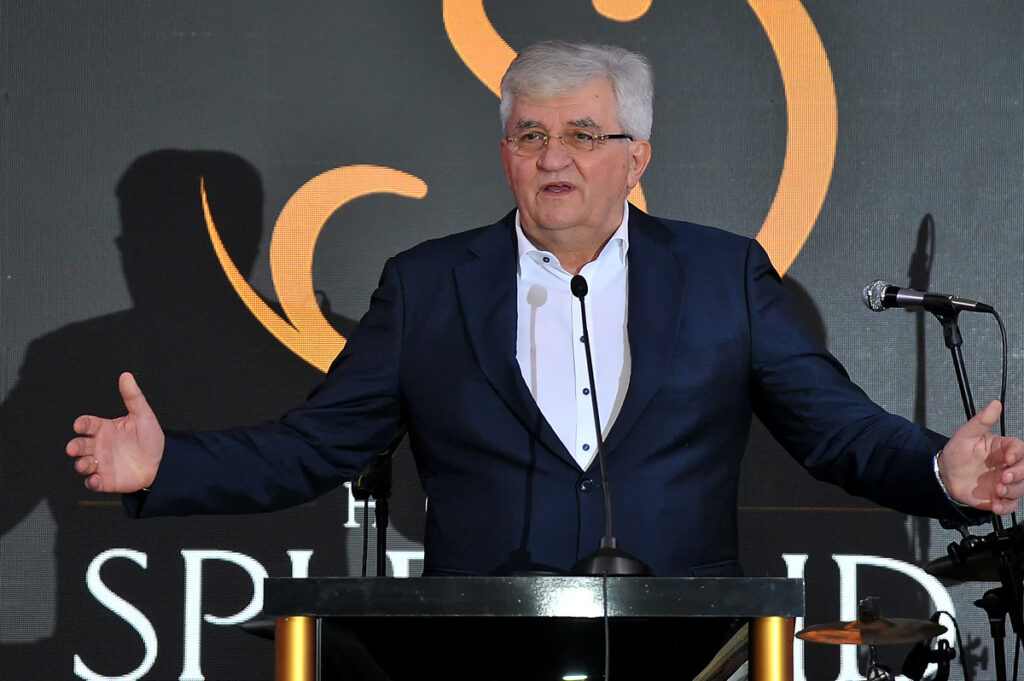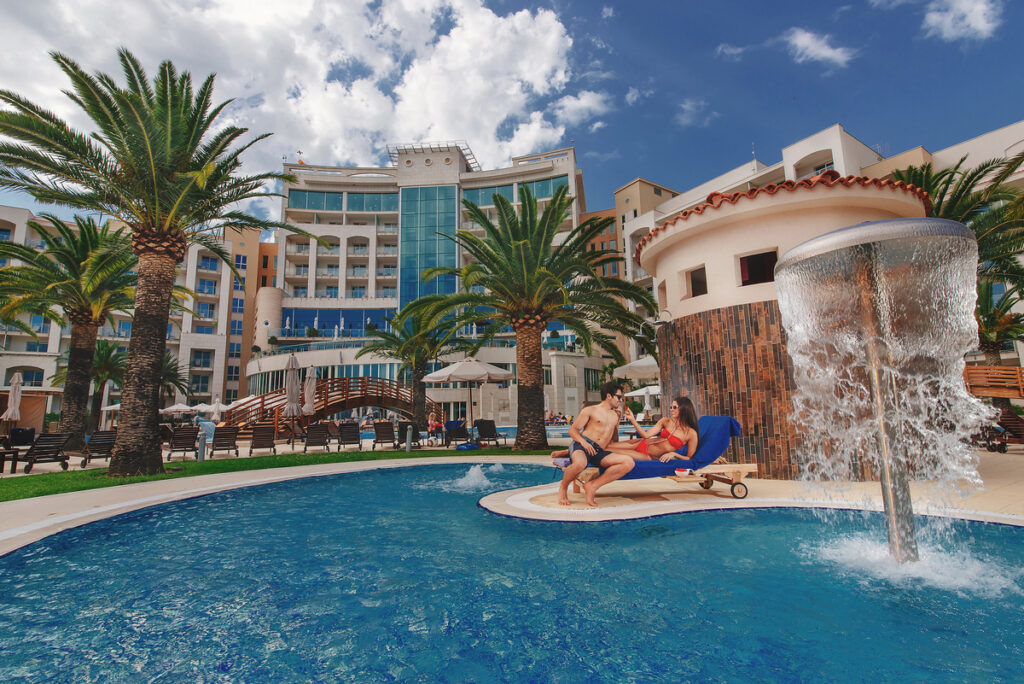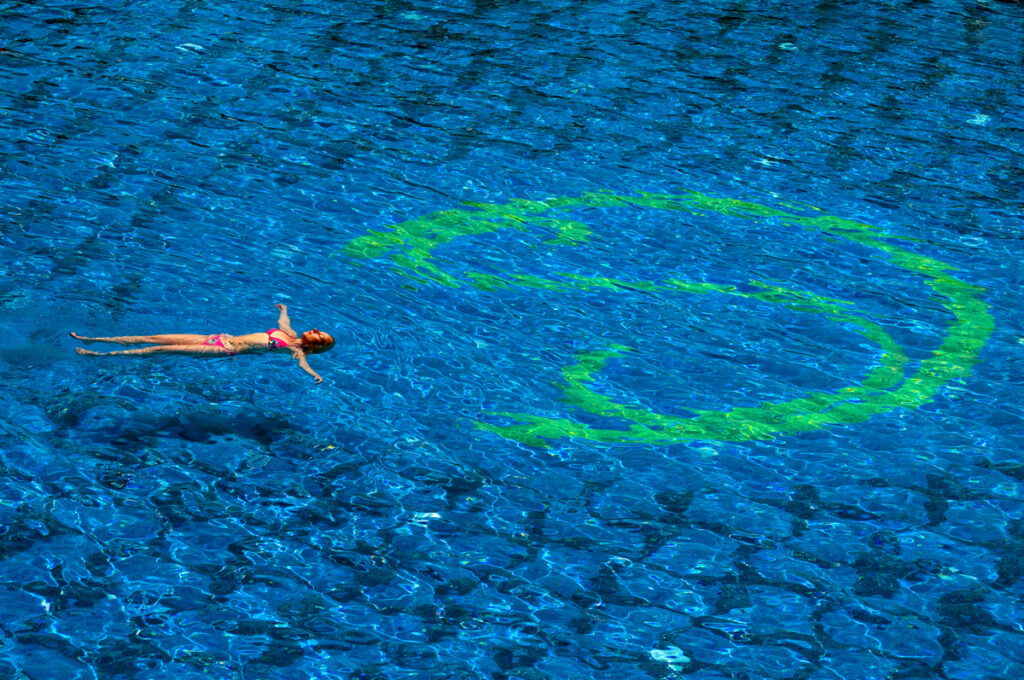Warnings of declining revenues, lost markets, and the urgent need for a strategic turnaround

TRAVEL INTERVIEW
by Robert Čoban
Žarko Radulović
Founder and Co-owner, Montenegro Stars Hotels Group
Žarko Radulović, Founder and Co-owner, Montenegro Stars Hotels Group, does not soften his assessment of the state of the country’s tourism sector. In this interview, building on the remarks he made to the Podgorica daily Pobjeda in late July, he speaks openly about the absence of the peak season, declining revenues, rising taxes and fees that are stifling the industry, and the loss of key markets as a consequence of years of ignorance, inaction, and, as he puts it, perhaps even intent.
One bad year is difficult, but a series of bad seasons is a catastrophe
Do these assessments apply only to Montenegro or other countries in the region as well?
These assessments mostly apply to Montenegro. There are problems in other countries, too, but what is happening here at the moment is unbelievable. It is as if we are deliberately taking steps that lead us toward a scenario for which we will pay a high price. Everything is in complete contradiction to common sense, professional expertise, and the basic principles of responsible governance. In a word — organised chaos. Our destination, once competitive with the strongest in the Mediterranean, is finding it increasingly difficult to keep up with our neighbours, who are breaking records. True, we also managed to set a record, but an inglorious one — for the first time in 20 years, Montenegro recorded a drop in both arrivals and revenue, and that was last year.

What are the main geopolitical factors in Europe and the world that have affected the current season’s results in Montenegro and Croatia? Political instability in Serbia, the escalation of the war in the Middle East, the ongoing war in Ukraine…?
Global political instability, and with it financial uncertainty, has inevitably affected tourism, which is the most vulnerable sector and always the first to be hit by such shocks. We have lost our traditional markets — Russians, Ukrainians, and Belarusians — who used to arrive in large numbers precisely during the so-called “peak season,” from mid-June to early September. Their arrival was once almost certain, and they were the guests who made the most intensive use of the summer season.
Due to political and security developments in Serbia and the Republic of Srpska, the decline in arrivals from those countries is visible and significant this year. We have also directly felt the impact of the war in the Middle East. Israel has been a significant and fast-growing market for us over the past two to three years. This was confirmed by a strong early season, after which the expected peak season results completely failed to materialise. Something may improve in the post-season, but that will not be enough to offset the loss.
This is the last moment to move forward — or we will sink
On top of all this, amid such global circumstances, the local approach has been one of ignoring reality — a “closed-eyes” policy. A policy that assumes high revenues while, at the same time, undermining the very foundations on which tourism rests through ill-considered moves, thereby destabilising public finances.
Looking back, how would you assess the periods in Montenegrin tourism from 1990 to today: 1990–2005, 2006–2012, 2013–2020, and the past few years?

1990–2005:
This was a period of political and social turmoil that destroyed tourism. Wars, sanctions, isolation, and the collapse of the state and system. By 2005, we had practically “consumed our substance.” Hotels were devastated, neglected, and unable to achieve prices that would ensure sustainable operations. Tourism was on its knees. In 2003, privatisation began, launching an investment cycle. Hotels were renovated, quality improved, and the first serious investments, including ours, appeared.
2006–2012:
Following the restoration of statehood in the 2006 referendum, tourism experienced a strong upswing. Montenegro increasingly positioned itself as a tourist destination. There was an investment boom, an increase in tourist numbers and flights, and the real estate market developed. The country gained its first five-star resort — the Splendid Hotel — through a privatisation process that was a rare success story compared to many unsuccessful or unrealised ones. However, even this period was not fully utilised due to administrative barriers, obstruction, and a lack of vision.
2013–2020:
This was a period of strong growth in both tourist numbers and revenue. The sector recorded continuous growth, especially in private accommodation, digital platforms, and a record-breaking year in 2019. At the same time, growth could have been much greater, but investors faced numerous business barriers, bureaucracy, and administrative inefficiency. From what I know alone, around €2 billion in planned investments, instead of being realised in Montenegro, were successfully carried out in Turkey, Egypt, and Italy.
2020–present:
A period I could never have imagined — a level of ignorance, arrogance, and irresponsibility in managing tourism. It is led by people who understand neither its essence nor its strategic importance. The 2014 Tourism Law, which positioned Montenegro among the 10 fastest-growing destinations in the world, was abolished. The first move of the new government was to shut down the national airline, which had brought in 600,000 guests the year before its closure. This loss could not be compensated. Instead, we got a new company with one and a half aircraft, and we now depend on foreign carriers, which particularly affects the pre- and post-season.
VAT on accommodation was increased from 7% to 15% in the middle of the year — an unprecedented rise in global economic terms. This was a direct blow to business and the destination’s competitiveness, forcing us to raise prices by an average of 17% while depriving us of the opportunity to communicate this to guests. The consequence — the destination became more expensive and less attractive, while VAT revenue has been declining. At the same time, beach rental fees doubled, and administrative decrees increased wages.
Tourism has been left to the incompetent and subordinated to party interests. The economy carries the state on its back, while key budgetary sources are systematically neglected and undermined.
You have extensive experience in the hospitality industry — when you compare Montenegro and Croatia with other Mediterranean destinations, what lessons can be learned from the Italians, Spaniards, Greeks, and French?
It would be best to learn from their mistakes — to avoid repeating what they have already paid a high price for. That is the simplest and most effective way to progress.
You have said that abroad, a narrative has formed that “Montenegro is a beautiful Mediterranean country, but one to avoid in July and August.” This is now being written by influencers and tourists in comments across Europe. Why do they think Montenegro should be avoided during peak season?
Montenegro is not prepared for the number of guests arriving in late July and throughout August. We do not have adequate service at airports and border crossings, traffic is poorly regulated, and congestion is enormous.
A guest landing in Podgorica or Tivat often spends more time travelling from the airport to the hotel than travelling to Montenegro itself. Upon arrival at the hotel, they may forget the chaos, but if they decide to visit even Budva’s Old Town and take a taxi, the 3-kilometre ride may last 45 minutes and cost an inflated fare — their holiday is ruined. Nearly 150 kilometres of roads from north to south are under reconstruction, with works constantly delayed. If they are not under reconstruction, key routes are blocked, and both guests and locals are under stress.
Due to the chaos and congestion, cleanliness also suffers, and municipal services lag in preparations. Permits for beach operations are issued in mid-July — in the height of the season — while already questionable tenders and procedures are cancelled. In such an environment, guests leave disappointed and unwilling to return.
How can several bad tourist seasons affect Montenegro’s economy and the euro as the official currency?
One bad year is difficult, but a series of bad seasons is a catastrophe. Tourism makes up around 30% of Montenegro’s GDP, and it is an export industry — that money comes from outside. We are not taking it from our citizens; we are bringing it into the system — it is money from people we managed to attract from all over the world, who spent it here.
We do not have a printing press to produce euros — if the next two or three years are bad, we could physically run out of euros. That is a real threat.
When you speak with foreigners, partners, guests, or ambassadors — what do they like most about Montenegro, and what bothers them the most?
Foreigners are fascinated by the authentic nature, the diversity of natural beauty in a small area, and Montenegro’s rich cultural and historical heritage — from the sea to the mountains, from Kotor to Ulcinj. What surprises them, if not shocks them, is how unplanned, careless, and short-term our approach to this treasure is. They recognise the potential for developing sustainable and content-rich tourism, but are puzzled by how much we underestimate and directly endanger that potential.
How do you see tourism in Montenegro in ten years, in two scenarios: if the current trends continue, and if the authorities treat tourism as a strategic industry?
If things continue as they are now, we will turn back the clock to the 1990s — ruined hotels, debts, and the inability to operate sustainably. Once again, we will be waiting for new investors to rescue us, create a new concept, and repeat this cycle every 20 years.
However, we entrepreneurs are already organising. By the end of the year, we will form an expert body to develop an exit strategy — a clear, realistic, and constructive plan for what to do next. It will be a unified voice of the profession, able to articulate specific demands to the state more strongly. When someone eventually comes to power, they will have a document in their hands saying: “This is what we proposed, and you did the opposite. Now take responsibility.”
Because what is happening now is the result of enormous ignorance, unfounded self-confidence, and a lack of accountability. We are at a crossroads. This is the last moment to move forward — or we will sink.
Photos: Montenegro Stars Hotels Group